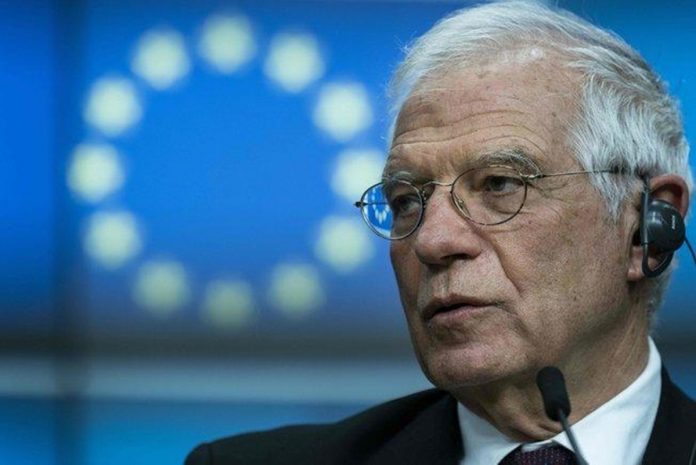Introduction
In a recent statement that has added to the growing discourse surrounding Venezuela’s presidential elections, Josep Borrell, the European Union’s High Representative for Foreign Affairs, declared that the election results cannot be considered representative of the Venezuelan people’s will until they undergo thorough verification. Borrell’s remarks come amidst widespread concerns about the integrity of the electoral process, marked by allegations of irregularities and procedural flaws. This detailed analysis explores Borrell’s position, the EU’s stance on the election, and the broader implications for Venezuelan democracy.
Josep Borrell’s Statement on the Venezuelan Elections
The EU’s Demand for Transparency
On Monday, Josep Borrell addressed the media, underscoring the need for the Venezuelan National Electoral Council (CNE) to exhibit complete transparency in the electoral process. According to Borrell, the election results announced thus far are not sufficient to reflect the true democratic will of the Venezuelan people. He emphasized that the results cannot be deemed representative until they are published and verified comprehensively.
Borrell called on the CNE to ensure full transparency by providing immediate access to the voting records from all polling stations. This includes the publication of detailed electoral results, which would allow for an accurate and transparent tallying of the votes. The EU’s insistence on transparency reflects its broader commitment to fair and credible electoral processes globally.
Reports of Irregularities
Borrell highlighted that reliable reports from both national and international observers indicate numerous faults and irregularities in the election. These issues, according to the EU, have tainted the credibility of the electoral process. The High Representative pointed out that these irregularities have contributed to an environment where the electoral conditions are perceived as unfair and unequal.
Opposition and Electoral Conditions
Borrell acknowledged the opposition’s dedication to participating in the electoral process despite the challenging conditions. He criticized the lack of implementation of key recommendations from the EU’s 2021 electoral observation mission, which had highlighted several issues that needed addressing to ensure a fair election. The EU’s criticism centers on several factors:
- Obstacles to Opposition Participation: The challenges faced by opposition candidates in accessing the electoral process and competing on an equal footing with the ruling party.
- Electoral Register Deficiencies: Issues related to the accuracy and accessibility of the electoral register.
- Unequal Media Access: Disparities in media access that may have affected the fairness of the electoral campaign.
Concerns Over Human Rights Violations
Borrell expressed deep concern over reports of arbitrary detentions and intimidation of opposition members and civil society throughout the electoral process. He reiterated the EU’s call for the immediate release of all political prisoners, reflecting the Union’s broader human rights agenda.
The High Representative praised the Venezuelan people for their resilience and determination to vote peacefully and in large numbers despite the adverse conditions. He also commended the opposition’s commitment to the electoral process under challenging circumstances.
The EU’s Call for Dialogue and Peaceful Resolution
Respect for Democratic Will
Borrell underscored the importance of respecting the Venezuelan people’s democratic will, emphasizing that their voices should be heard and valued in the political process. The EU’s call for dialogue aims to foster an environment where democratic principles can be upheld.
Ensuring Human Rights
The EU has urged Venezuelan security forces to ensure full respect for human rights, including the right to peaceful assembly. This call for calm reflects the Union’s commitment to upholding fundamental freedoms and preventing further escalation of tensions.
Diplomatic and Political Efforts
Borrell assured that the European Union will continue to devote its political and diplomatic efforts to supporting dialogue and a peaceful, negotiated resolution to Venezuela’s political crisis. The EU remains committed to regional and international efforts aimed at facilitating dialogue and restoring the democratic legitimacy of Venezuelan institutions.
International Reactions and Implications
Global Skepticism
Several countries, including the United States, Argentina, Chile, Peru, Guatemala, and Costa Rica, have expressed skepticism about the transparency and legitimacy of the Venezuelan electoral process. These nations have labeled the election as fraudulent, arguing that it does not accurately reflect the will of the Venezuelan people.
Impact on Venezuelan Democracy
The international scrutiny and criticism of the election process highlight the broader concerns about Venezuela’s democratic integrity. The allegations of fraud and irregularities, coupled with calls for transparency and dialogue, underscore the challenges facing Venezuela in its quest for a fair and democratic political system.
The Role of International Observers
The involvement of international observers and the scrutiny they apply play a crucial role in assessing the fairness of elections. The EU’s emphasis on verification and transparency aligns with its broader approach to supporting democratic processes worldwide.
Conclusion
Josep Borrell’s statement on the Venezuelan elections reflects a critical perspective on the current state of electoral integrity in Venezuela. His call for transparency and verification highlights the need for a thorough examination of the election results to ensure they accurately represent the will of the Venezuelan people. As international scrutiny intensifies and calls for dialogue and reform persist, Venezuela faces a pivotal moment in its democratic journey. The EU’s ongoing support for transparency, human rights, and peaceful resolution remains central to addressing the current political crisis and restoring confidence in the electoral process.


